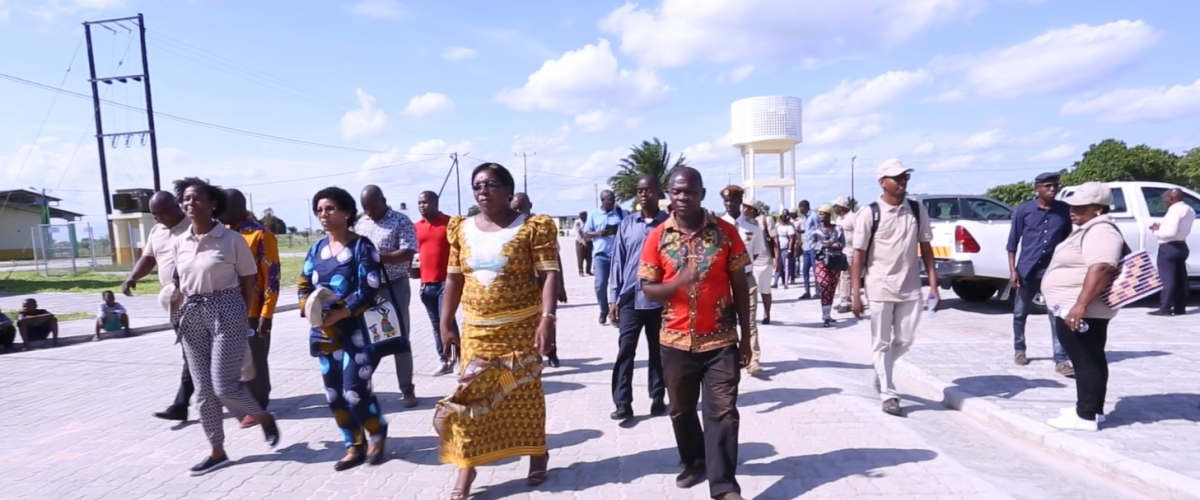
“Huge and Worthwhile Investment” was the impression shared by the majority during the stakeholders visit to the newly built Regional Centre of Leadership in rice-based systems research in Namacurra, Mozambique held on the 30th of January 2020.
The visit started with a courtesy call to His Excellence Governor of Zambezia, Mr Augusto Pio Matos who highlighted the potential contribution of the rice RCoL both at local and regional levels.
“We are all glad to have the rice RCoL in our province especially because it will support local smallholder famers as well as from other rice-based farming areas across the country such as Gaza province and from the SADC region as a whole”, emphasized Pio Matos.
The Rice RCoL is a newly built 50 hectares research infrastructure which encompasses Biotechnology Lab, Entomology Lab, Seed Lab, Seed warehouse, Chemical and Fertilizer warehouse, Administrative block, Water reservoirs, Irrigation and Water pump systems as well as houses for researchers.
About 30 delegates from 10 SADC member states had an opportunity to tour a research infrastructure built under the Agricultural Productivity Programme for Southern Africa (APPSA), a six years World Bank funded project.
“This is a huge investment for the region, that will benefit not only in Mozambique but SADC region and the entire Africa”, said one of the visitors, Dr N’guni Dickson, APPSA Coordinator in Zambia.
APPSA has supported agricultural research, technology dissemination, and capacity building activities in Malawi, Mozambique and Zambia. Priority farming systems for each RCoL were identified on the basis of a regional priority-setting study that identified leading R&D priorities for the SADC region, as well as in country priorities. Malawi has established an RCoL on maize and maize-based farming systems. Zambia established an RCoL on food legumes and food legumes-based farming systems. Mozambique has established an RCoL on rice and rice-based farming systems.
An RCoL is defined as a leading agricultural technology centre or program with established capacity (or the potential to establish capacity) that distinguishes it as a leader in the region and beyond.
Rice cultivation has been practiced in Mozambique for more than 500 years. It is mainly done in lowland rainfed ecologies, where farmers follow traditional management practices. According to Judite Faria, Provincial Secretary of the State who also hosted the delegates from various countries in the SADC region in her office, RCoL establishment in Namacurra will contribute to fast tracking the rice production and productivity as well as contribute to strengthening of the value chain.
“Our expectation is that the RCoL will be a key player in the value chain given that we don’t want it to only focus on increasing production but also on market systems”, shared Judite Faria.
Rice is one of the major crops for production in Mozambique, along with maize, wheat, and sorghum. However, rice consumption has increased rapidly in recent years, from 86 thousand tons in 1990 to 519 thousand tons in 2010, at an annual growth rate of 8.6%.





